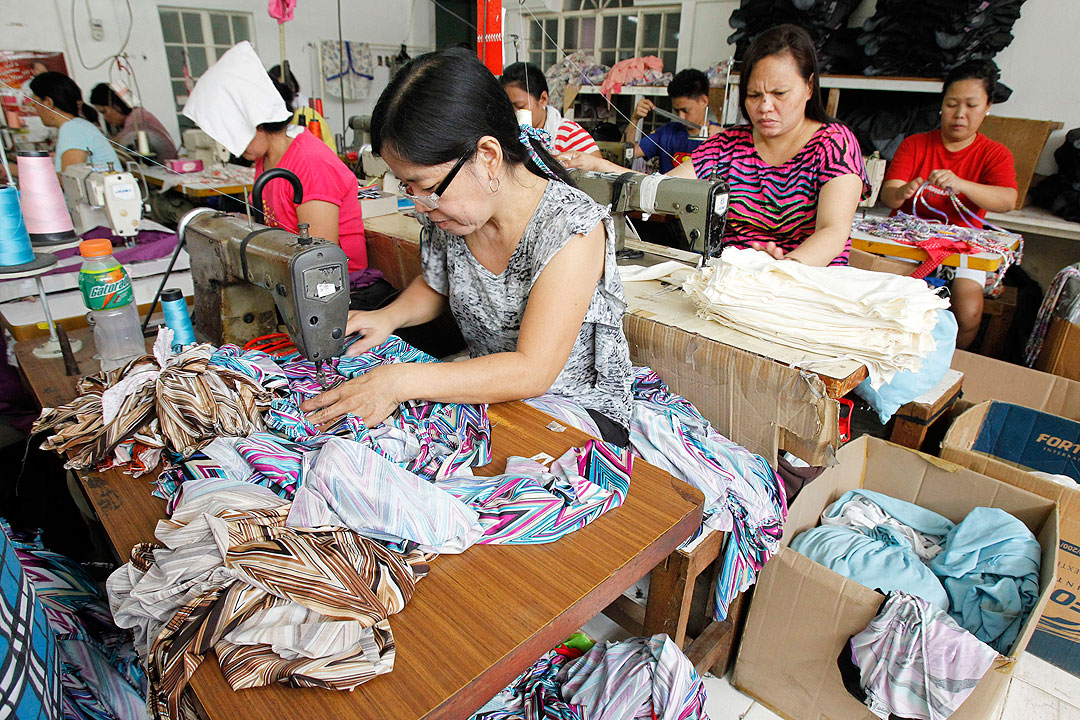
AN upcoming European Union (EU) tariff scheme that rewards low-carbon practices could encourage exporters to shift to greener technology, Sustainable Fitch said.
“We believe APAC (Asia-Pacific) exporters will be incentivized to develop clean production technologies that meet the more stringent EU emission standard. Regulators could also be more inclined to set up domestic carbon-pricing mechanisms to encourage a reduction in carbon intensity and minimize downside risk amid a growing trend of carbon tariffs, elsewhere around the world,” according to Sustainable Fitch, a specialist environmental, social and governance (ESG) unit of the Fitch Solutions group.
The EU is aiming to launch the Carbon Border Adjustment Mechanism (CBAM) by October, which will require importers to purchase carbon certificates mirroring European carbon prices. It is expected to be fully operational by 2026.
“Ultimately, the scheme aims to incentivize the adoption of cleaner technologies in industrial production to reduce carbon leakage, particularly by major exporters of raw materials and manufactured goods,” Sustainable Fitch said.
“We expect the scheme to encourage Asia-Pacific (APAC) exporters to develop and implement clean technologies that reduce carbon intensity in anticipation of CBAM compliance as well as a possible expansion of sectors covered by the mechanism,” it added.
Sustainable Fitch said it expects that decarbonization will not be as straightforward in Southeast Asia, particularly as “governments balance social and economic considerations with environmental ones.”
However, it noted that CBAM may hasten the progress in aligning national carbon frameworks and strategies with net-zero carbon emission goals.
The EU is southeast Asia’s third-largest trading partner after China and the US, accounting for around 11% of total trade, according to the European Commission.
On the other hand, Sustainable Fitch said that the CBAM will increase the supply-chain costs of covered commodities, which will be passed on downstream.
“This scenario has spurred discussions over trade protectionism and discrimination against EU’s trading partners, as the carbon tariffs may encourage APAC industrial producers to divert trade flow towards markets that do not impose such schemes to remain cost competitive. The effectiveness of carbon tariffs to curb carbon leakage should improve as the scale of carbon markets and covered sectors expands,” it said.
“Still, despite the large trading volume, the region’s response to the CBAM has been muted, because close to 90% of southeast Asian exports of manufactured goods to the bloc fall outside the stipulated product categories,” it added, citing Eurostat.
The initial phase of CBAM will only apply to six sectors, none of which are key to EU-southeast Asian trade, the report noted.
“As such, Sustainable Fitch sees a limited impact to major southeast Asian economies for now. However, the situation is likely to evolve over time. For instance, if the CBAM is expanded to include a larger range of sectors and imported products, regional southeast Asian economies may be compelled to implement appropriate domestic environmental regulations and technologies to avoid losing an important overseas market. Such a transition would not be without challenges,” it added.
British Chamber of Commerce of the Philippines Executive Director Chris Nelson said that, while the UK is now on the outside looking in on EU policy, schemes like CBAM could set the trend in trade policy.
“I think the move on carbon emissions is an inevitable consequence not only in Europe or the United Kingdom (UK) but in Asia. The Philippines is looking at ESG principles and I think the positive side is the move of companies and businesses to look at greener sources of energy. Inevitable, but it has positive developments,” he said by phone on Monday.
“This is a likely development which will need to be adjusted to. Carbon emissions apply to many sectors and businesses. I think this will give a further push to renewable energy, which has been mentioned by the (Philippine) administration,” Mr. Nelson said, also noting that the UK is also considering its own carbon pricing system.
Meanwhile, Confederation of Wearable Exporters of the Philippines Executive Director Maritess Jocson-Agoncillo said that the CBAM represents “another major tariff barrier.”
“(It) will definitely impact the Philippine apparel and textile sector. The supply chain, specifically from textile production, will be adversely affected as carbon emissions are mostly a by-product of textile production. This will add up to the cost of the base raw material,” she said in a Viber message.
“The supply chain at source will definitely carry additional costs and this will be passed on within the supply chain, apparel manufacturers and ultimately the consumer,” she added.
In 2022, exports to the EU accounted for 7.3% of total apparel exports. A decade ago, it was at around 15%, Ms. Jocson-Agoncillo added.
The Philippines was the EU’s 39th largest trading partner in 2021. — Luisa Maria Jacinta C. Jocson



